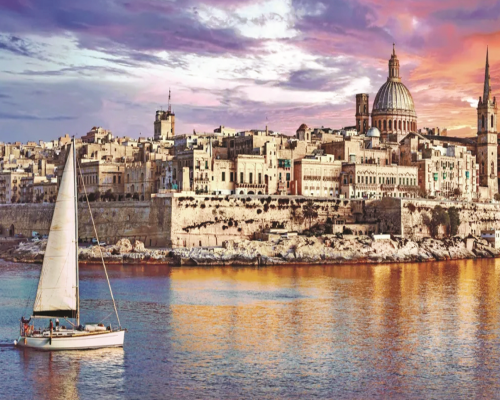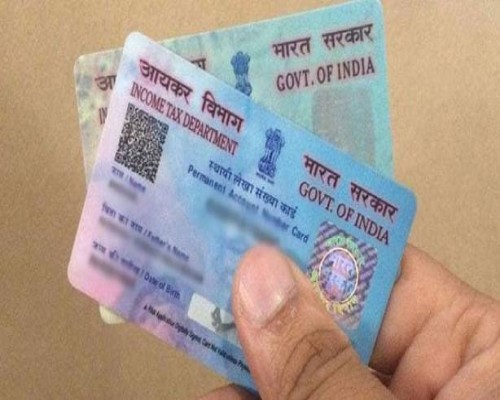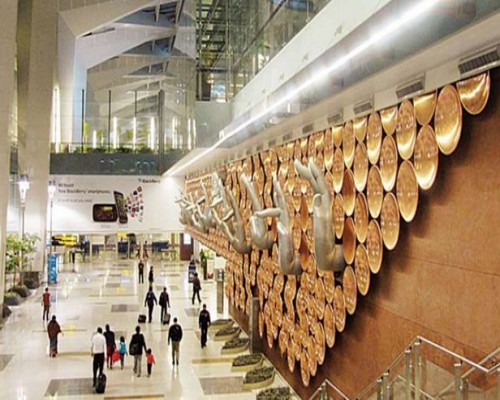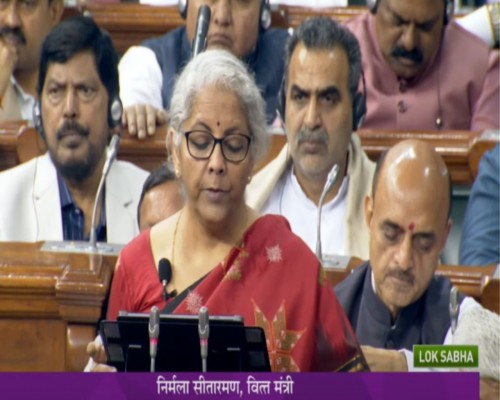ECONOMIC DIVERSIFICATION AND INNOVATION IN MALTA:

Malta, a small island nation located in the Mediterranean Sea, has historically relied on sectors such as tourism, manufacturing, and maritime services for economic growth. However, in recent years, the Maltese government has recognized the need for economic diversification and innovation to reduce dependence on traditional industries and foster long-term sustainable development. This essay aims to provide a comprehensive analysis of economic diversification and innovation in Malta, exploring the challenges, initiatives, and future prospects for economic growth and prosperity.
Malta – Future proofing the Islands’ Economic Boom
Economic Landscape of Malta: Malta's economy has undergone significant transformation since gaining independence in 1964. Initially reliant on agriculture and manufacturing, Malta transitioned towards a services-based economy, driven by sectors such as tourism, finance, and information technology. The tourism industry, in particular, has played a crucial role in Malta's economic development, attracting millions of visitors annually to its historical sites, beaches, and cultural attractions. Additionally, Malta has positioned itself as a hub for maritime services, including shipping, logistics, and ship registration, leveraging its strategic location and well-developed infrastructure.
Challenges of Economic Dependence: Despite its economic successes, Malta faces several challenges associated with its dependence on traditional industries:
1. Vulnerability to External Shocks: Malta's reliance on tourism and other traditional sectors makes its economy vulnerable to external shocks, such as global economic downturns, geopolitical instability, and health pandemics. The COVID-19 pandemic, in particular, dealt a severe blow to Malta's tourism industry, highlighting the risks of overreliance on a single sector.
2. Skills Mismatch: Rapid economic growth and technological advancement have led to a mismatch between the skills demanded by emerging industries and those possessed by the workforce. Addressing this skills gap requires investments in education, training, and lifelong learning initiatives to equip Maltese workers with the skills needed for the jobs of the future.
3. Environmental Sustainability: Economic development must be pursued in a manner that is environmentally sustainable, minimizing negative impacts on Malta's natural resources and ecosystems. Overdevelopment, pollution, and unsustainable resource use pose threats to Malta's environmental integrity and long-term viability as a tourist destination.
4. Brain Drain: Despite efforts to attract foreign talent and promote entrepreneurship, Malta continues to experience brain drain, with skilled professionals leaving the country in search of better opportunities abroad. Retaining talent and fostering a culture of innovation and entrepreneurship are essential for driving economic diversification and growth.
Initiatives for Economic Diversification and Innovation: To address these challenges and capitalize on new opportunities, Malta has implemented various initiatives aimed at promoting economic diversification and fostering innovation:
1. Digital Innovation: Recognizing the potential of digital technologies to drive economic growth, Malta has prioritized initiatives to promote digital innovation and entrepreneurship. The establishment of the Malta Digital Innovation Authority (MDIA) and the Malta Innovation Hub (MIH) aims to attract digital startups, facilitate investment, and support research and development in emerging technologies such as blockchain, artificial intelligence, and fintech.
2. Research and Development (R&D): Investing in research and development is crucial for fostering innovation and enhancing Malta's competitiveness in the global economy. The Malta Council for Science and Technology (MCST) supports R&D projects through grants, incentives, and collaboration with academia and industry partners. Additionally, Malta participates in EU-funded research programs such as Horizon Europe to access funding and expertise for innovative projects.
3. Renewable Energy and Green Technologies: Transitioning towards a more sustainable and resilient economy, Malta has prioritized investments in renewable energy and green technologies. Initiatives such as the National Energy and Climate Plan (NECP) aim to reduce Malta's dependence on fossil fuels, promote energy efficiency, and increase the share of renewable energy sources in the energy mix. Furthermore, incentives for renewable energy projects and green infrastructure development support the transition towards a low-carbon economy.
4. Creative Industries: Malta's rich cultural heritage and creative talent provide opportunities for the development of creative industries such as film production, gaming, design, and the arts. The Malta Film Commission and the Malta Arts Council support the growth of the creative sector through funding, incentives, and infrastructure development, attracting international collaborations and generating economic value.
5. Tourism Diversification: While tourism remains a cornerstone of Malta's economy, efforts are underway to diversify tourism offerings and attract niche markets such as cultural tourism, eco-tourism, and luxury travel. Investing in heritage preservation, sustainable tourism infrastructure, and experiential tourism products enhances Malta's appeal as a destination while mitigating the negative impacts of mass tourism.
Future Directions and Challenges: Looking ahead, Malta must continue to prioritize economic diversification and innovation to build a resilient and dynamic economy capable of withstanding global challenges. Key priorities and challenges include:
1. Strengthening the Innovation Ecosystem: Fostering a vibrant innovation ecosystem requires collaboration among government, academia, industry, and civil society. Strengthening linkages between research institutions, startups, incubators, and venture capital firms promotes knowledge exchange, technology transfer, and commercialization of research outcomes.
2. Enhancing Education and Skills Development: Investing in human capital is essential for building a workforce equipped with the skills and competencies needed for the jobs of the future. Reforming education curricula, expanding vocational training programs, and promoting lifelong learning opportunities ensure that Maltese workers remain adaptable and resilient in a rapidly changing economy.
3. Sustainable Development: Balancing economic growth with environmental sustainability is critical for Malta's long-term prosperity. Implementing sustainable development strategies that integrate economic, social, and environmental objectives fosters inclusive growth, preserves natural resources, and enhances quality of life for current and future generations.
4. Fostering Social Innovation: Social innovation plays a crucial role in addressing societal challenges and improving quality of life in Malta. Encouraging social entrepreneurship, community-driven initiatives, and public-private partnerships empowers citizens to co-create solutions to pressing social and environmental issues, fostering social cohesion and resilience.
Conclusion:
Economic diversification and innovation are essential for driving Malta's transition towards a knowledge-based, sustainable economy that creates opportunities for all. By leveraging its strategic advantages, investing in human capital, and embracing new technologies and industries, Malta can unlock its full potential and achieve inclusive and sustainable development. Through collaboration, creativity, and resilience, Malta can chart a path towards a prosperous future that benefits both its citizens and the global community.























